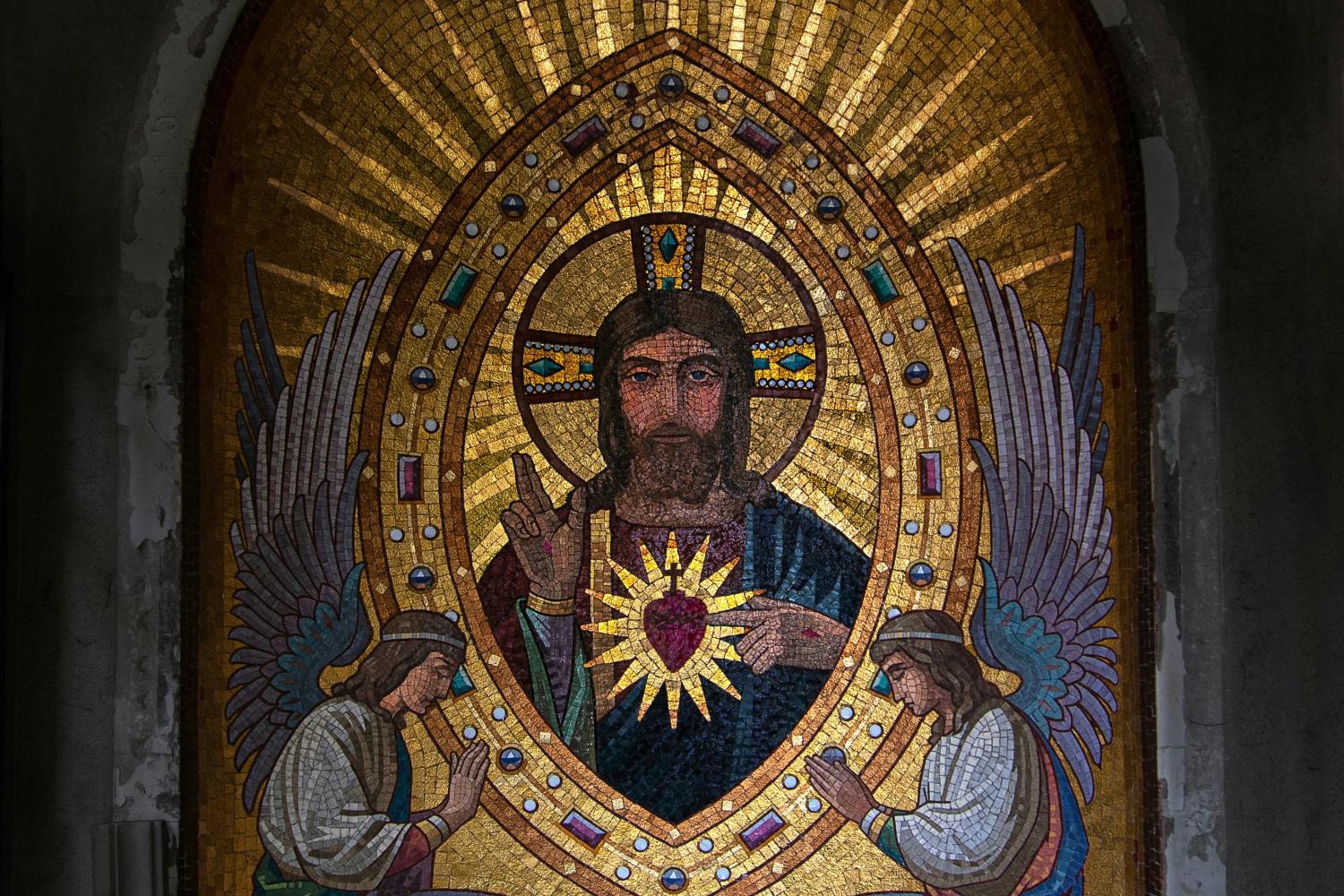
Pope Francis recently issued his fourth encyclical, titled “Dilexit Nos,” “He Loved Us.” “On the human and divine love of the heart of Jesus Christ,” the letter is a stirring summons to renewed devotion to the Sacred Heart of Jesus, inviting Christians to recall the full meaning of His love and to hear anew the fundamental call of faith: “His open heart has gone before us and waits for us, unconditionally, asking only to offer us his love and friendship.”
The takeaways from the piece are rich and many, drawing on a long and fulsome tradition of spiritual writing from Saints Margaret Mary Alacoque to Thérèse of Lisieux to John Henry Newman. Opposing the modern reduction and depreciation of the meaning of “the heart,” such a tradition, the Pope suggests, conceives of the heart as something much more profound: it is the human person’s spiritual center, the unifying ground of our interior lives, where a personal encounter with Christ’s own person is made possible. And that encounter, the Pope insists, is given its full meaning in the light of His incarnation, which both honors and uplifts the hearts it comes to: through a love that is both divine and human, infinite and transformative as well as sensible and compassionate.
Thus the Pope’s is a message meant for every time and place: he points over and over to the saints’ plea that we throw ourselves upon the love and mercy of Christ, who speaks to each of us the message given to Saint Mary Margaret. “My divine Heart,” He told her, “is so inflamed with love for men, and for you in particular, that, no longer able to contain in itself the flames of its ardent charity, it must pour them out through you and be manifested to them, in order to enrich them with its precious treasures which I now reveal to you.”
By the same token, it’s also a message we ought to keep in mind in the midst of our times, particularly. The Pope notes that the love of Jesus that unifies and heals us is also meant to be given back to the world through us, in reparation for the ways it’s been received indifferently, lukewarmly, or outrightly rejected. Like Christ, we are not to spare ourselves in the ways we love our families, our friends, our colleagues and strangers. A readiness to look upon them as the full, dignified human persons they are is what’s called for.
And so at a cultural moment when the “social justice warrior” tends to take center stage in the media and in much of our social and institutional life – that figure often being heralded as the one who cares and loves most – the encyclical offers an alternative vision it will do us well to keep in view. What’s wanted in the world is not justice, pure and simple; if we’re honest with ourselves, our fragmented, inadequate lives would be unable to bear that kind of judgment. What’s wanted in the world is instead the merciful love of the heart of Christ – a love readier to receive and to offer a restoring gaze than it is to condemn and rebuke. And so as we think about our role in a world motivated by “just causes” and a better society (with big news promising to break along that line in the coming days), we might receive the Pope’s message as an eminently timely one, keeping our hearts supple to the disposition he prompts: “In our slightest works of mercy,” he writes, “[Christ’s] heart is glorified and displays all its grandeur. Once our hearts welcome the love of Christ in complete trust, and enable its fire to spread in our lives, we become capable of loving others as Christ did, in humility and closeness to all. In this way, Christ satisfies his thirst and gloriously spreads the flames of his ardent and gracious love in us and through us. How can we fail to see the magnificent harmony present in all this?”
The Synod on Synodality has concluded in Rome.
What does neuroscience have to say about free will? The Society of Catholic Scientists explore.
In preparation for election week, one author reflects: "It's hard to be a political animal."


